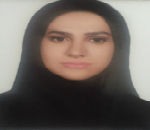
Zahra Azizian
Iran university of medical sciences, Iran
Title: Comparing combination of Calcipotriol and Betamethasone with Bethamethasone in the treatment of scalp psoriasis in Iranian population (randomized, controlled clinical trial)
Biography
Biography: Zahra Azizian
Abstract
Introduction & Aim: Psoriasis is one of the most common skin diseases whose prevalence in the general population is estimated to be 1.4 to 2.9% and even greater. The type of its scalp has also a high prevalence. Using the two-drug regimen including calcipotriol+Betamethasone compared with betamethasone single drug regimen has been tested in some studies. This study is conducted aiming at comparing the efficacy and drug complications of these two regimens in the Iranian population.
Methods & Materials: 50 patients with scalp psoriasis were randomly divided into two groups. One group of patients was administered with simultaneous Betamethasone+calcipotriol (B+C) and the other group with betamethasone. Clinical status of patients before the treatment and at weeks 2, 4, 6 and 8 after initiation of the treatment was compared and evaluated in both groups based on the TSS, IGA and PGA criteria.
Results: 27 patients (54%) were in group B+C and 23 patients (46%) were in group B and also 30 (60%) patients of the whole were male patients and 20 patients (40%) were female. The intensity of the clinical symptoms is significantly better in group B+C compared with group B by beginning of the treatment and of the first assessment (second week). Furthermore, patients of group B+C reaches a better quality level compared to the group B. Comparison of the basic TSS and TSS of eight week show that significant difference is seen between the two group after termination of the treatment (p=0.004) and within the two TSS groups (p=0.003). Average complete treatment time in group B+C is about 5 and in group B is about 7 weeks that in group B+C, this average time is significantly less. Furthermore, this study shows that in both groups after the fourth week through the fifth week, no significant change is seen in the number of those treated individuals.
Conclusion: The result of the present study revealed that two-drug treatment is a reliable and low-complication method compared with the single-drug regimen and has much more effective and faster treatment efficacy.
